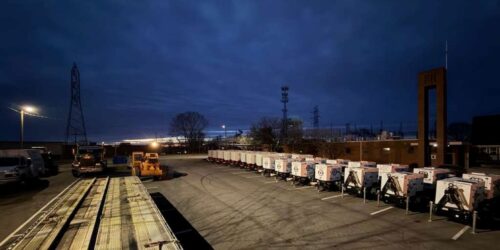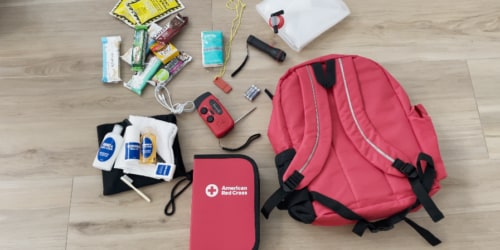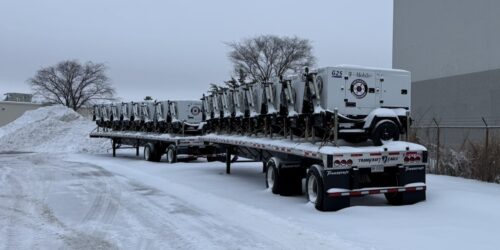In western states like California, Oregon, and Washington, the idea of a “wildfire season” confined to August through November is a thing of the past. These days the danger exists all year long. In response, T-Mobile has expanded our network preparations to cover more communities that may be impacted by wildfires throughout the year. We’re committed to helping customers stay connected before, during and after wildfires.
How We Prepare
Predicting exactly when and where a wildfire will strike is nearly impossible, but T-Mobile takes a variety of precautionary steps so we’re ready to respond immediately when the time comes. We work with forecasting company StormGeo to keep an eye out for “fire weather” — high winds, low humidity and dry conditions that might combine to create a perfect storm for a wildfire. And in case of commercial power outages, we make sure our cell sites have backup power. Some of our additional preparatory steps include:
- Monitoring our network and tracking weather conditions 24/7 through our Network Operations Centers (NOCs).
- Installing fixed backup generators at key sites to keep our network running in case power goes out.
- Staging temporary generators near areas where utility companies may conduct wildfire-related outages.
- Having wireless cells on wheels (COWs) and cells on light trucks (COLTs) on standby for additional coverage.
- Protecting air quality in retail stores by installing air scrubbers in locations near wildfire-prone areas.
Response Ready
When wildfires wreak havoc in communities, T-Mobile engineering and emergency response teams take immediate action. Technicians make repairs where needed and bolster the network while support teams supply residents with the resources they need to stay connected with family and friends. Here’s how we help:
With a rapid response fleet that’s double in size. We now have more than 20 different types of response vehicles, including mobile command centers and satellite-capable trucks, that can maneuver through disaster zones more easily than bigger pieces of equipment.
When wildfires damage cell sites or structures, our engineering teams jumps into action to get things up and running again. They bring in the right equipment for recon and repair as soon as it’s safe to do so and work around the clock until everyone is back online.
Community support teams operate a dozen community support trucks and mobile store trailers, where people can plug into charging stations, connect to the network, or get cell phone chargers, cell phone cords, or pre-activated cell phones so they can let their loved ones know they’re okay.
How Customers Can Be Ready
There’s a lot you can do to protect your home against wildfires and prepare yourself and your family for a wildfire threat:
- Clear out the space around your home! Emergency responders recommend creating 100 feet of “defensible space” around your home and keeping that area clear of debris, shrubs or anything else that could catch fire.
- Make an emergency kit that’s easy to grab in a hurry! Include things like face masks, non-perishable food, water, medications, batteries, flashlights and phone chargers.
- Make a wildfire evacuation plan and tell your friends, family and neighbors! It can include a meeting spot outside your neighborhood and a person to call who’s out of the area in case your family or friend group gets separated.
- Keep your phone fully charged! And consider purchasing a portable charger.
- Sign up for text alerts from local emergency responders or follow them on social media to get the latest info before, during and after a disaster.
- Make sure your phone supports Wireless Emergency Alerts and that you turn on notifications. Visit www.t-mobile.com/wea for details on how to set up alerts on T-Mobile and Sprint devices.
- Set up Wi-Fi Calling on your phone. It lets you make or get calls if you have a Wi-Fi connection in an area with little or no cellular coverage. For Apple phones, go to Settings > Phone > Wi-Fi Calling; and for Android phones, go to Settings > More Connection Settings > Wi-Fi Calling.
For More Information
- Check for updates on the T-Mobile Newsroom.
- Follow us on Twitter at @TMobile.
- Follow T-Mobile President of Technology Neville Ray on Twitter.
- Call 611 from your T-Mobile or Metro by T-Mobile handset.
- Get the latest wildfire map and information from the US Forest Service.
- Read more about our emergency response on the T-Mobile website.



